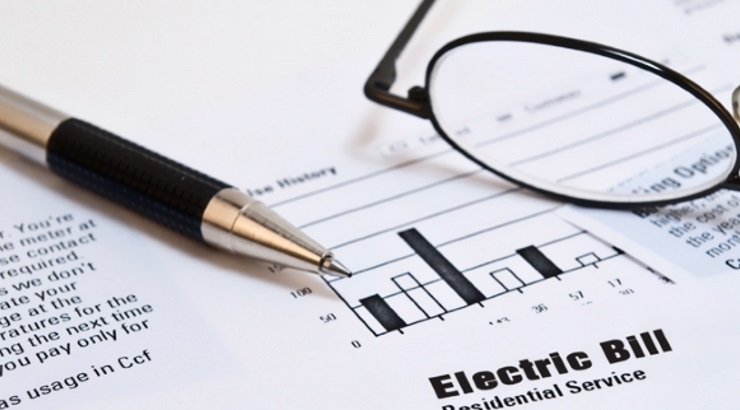Energy Efficiency
10 Effective Strategies to Conserve Energy at Home
How to effectively save electricity and slash your home energy costs.

In an age where escalating energy prices cast a looming shadow, electricity consumers are increasingly fixated on the pursuit of energy conservation.
Whether it involves the purchase of energy-efficient appliances or venturing into solar power investments, homeowners are determined to save electricity.
Here are 10 great tips for energy conservation at home.
1. Turn the lights off when not in use
Always turn off the lights and any electrical appliances when leaving a room. Also, unplug appliances such as TVs, radios, DVD players, etc., as they have standby functions that consume electricity even when they are turned off.
2. Use natural light
Utilizing sunlight is one of the most effective ways to save power at home. However, this largely depends on the orientation of the windows.
North and south-facing windows offer gentle sunlight and less glare, while east and west-facing windows provide direct sunlight but less heat retention.
3. Replace your light bulbs
Traditional incandescent light bulbs consume a significant amount of electricity and are not as durable as the energy-efficient alternatives.
When shopping for light bulbs, look for Energy Star-certified LED light bulbs, which often consume up to 90% less energy than incandescent light bulbs.
RELATED: The Surging Adoption of Solar Energy
Opt for light bulbs with a lower wattage in areas of your house where bright right is not necessary. Additionally, switch off outdoor lighting during the day.
While energy-efficient bulbs may have a higher upfront cost, their conservation of energy and longer lifespans translate to significant long-term savings.
4. Optimize refrigeration
Vacuum the coils of your refrigerator regularly to lower your power bill and keep the condenser working efficiently. Remember to cool your food before putting it in the refrigerator.
Regularly vacuum the costs of your refrigerator to lower your power bill and ensure the condenser works efficiently.
Additionally, remember to cool your food before placing it in the refrigerator to reduce energy consumption and help maintain optimal temperature levels.
5. Optimize your oven
Another great idea for saving on power bills is to cook multiple dishes together and avoid opening the oven until the food is fully cooked.
Defrost food before baking or microwaving to ensure cooking efficiency.
6. Smart laundry practices
Washing clothes is an energy-intensive chore. According to Energy Star, heating water uses about 90% of the energy to operate a clothes washer.
It is therefore advisable to wash full loads of laundry using cold water for washing and rinsing. Don’t forget to clean your dryer’s lint filter after each load.
RELATED: Building a House That Can Withstand Any Storm
7. Upgrade appliances
When replacing old appliances, opt for the most energy-efficient ones.
When buying appliances, seek out the Energy Star label, which guarantees federal certification for reduced energy consumption compared to standard models.
While energy-efficient appliances might have higher upfront purchase prices, they usually save money on your monthly power bills.
Also, remember that faulty wiring can lead to higher energy usage. To avoid this, consider hiring an expert or educating yourself on efficient house wiring practices.
8. Upgrade your HVAC system
The older models of heating, ventilation, and air conditioning (HVAC) systems are notorious for their high electricity consumption.
They should be replaced with modern Energy Star-certified systems, which can reduce the average annual electricity bills for homes by nearly $140, according to Energy Star, a program run by the U.S. Environmental Protection Agency.
Additionally, upgrade your ventilation system to conserve energy. Improperly sealed ducts waste energy, adding hundreds to annual heating and cooling costs.
9. Optimize water heating
Water heating is a major consumer of energy and should therefore be optimized to save electricity at home.
Optimization can be done by acquiring an energy-efficient heater, using less hot water, lowering the thermostat on your heater, or insulating the heater and pipes.
When shopping for a heater, consider the type that best suits your requirements.
Tankless water heaters, for example, are energy efficient, but they may not suit large families due to their limited capacity for simultaneous hot water use.
Heat pump heaters stand out as one of the most efficient options for homes.
10. Install energy-efficient windows
Heat gain and loss through windows account for 25% to 30% of most homes’ heating and cooling energy, according to the U.S. Department of Energy.
It is therefore advisable to replace single-pane windows with double-pane alternatives to prevent heat loss through the windows.
In cold regions, ‘low-e’ storm windows, which feature a special coating that reduces heat transfer through the glass, can cut power bills significantly.
Besides, interior or exterior low-e storm windows decrease heat loss by 10% to 30%, especially in regions that experience extreme weather conditions.
In warmer regions, low-e coatings on windows minimize both heat loss and heat gain by reflecting more light.
You should also consider additional insulation options such as window shades, shutters, screens, and awnings to enhance the conservation of energy at home.














